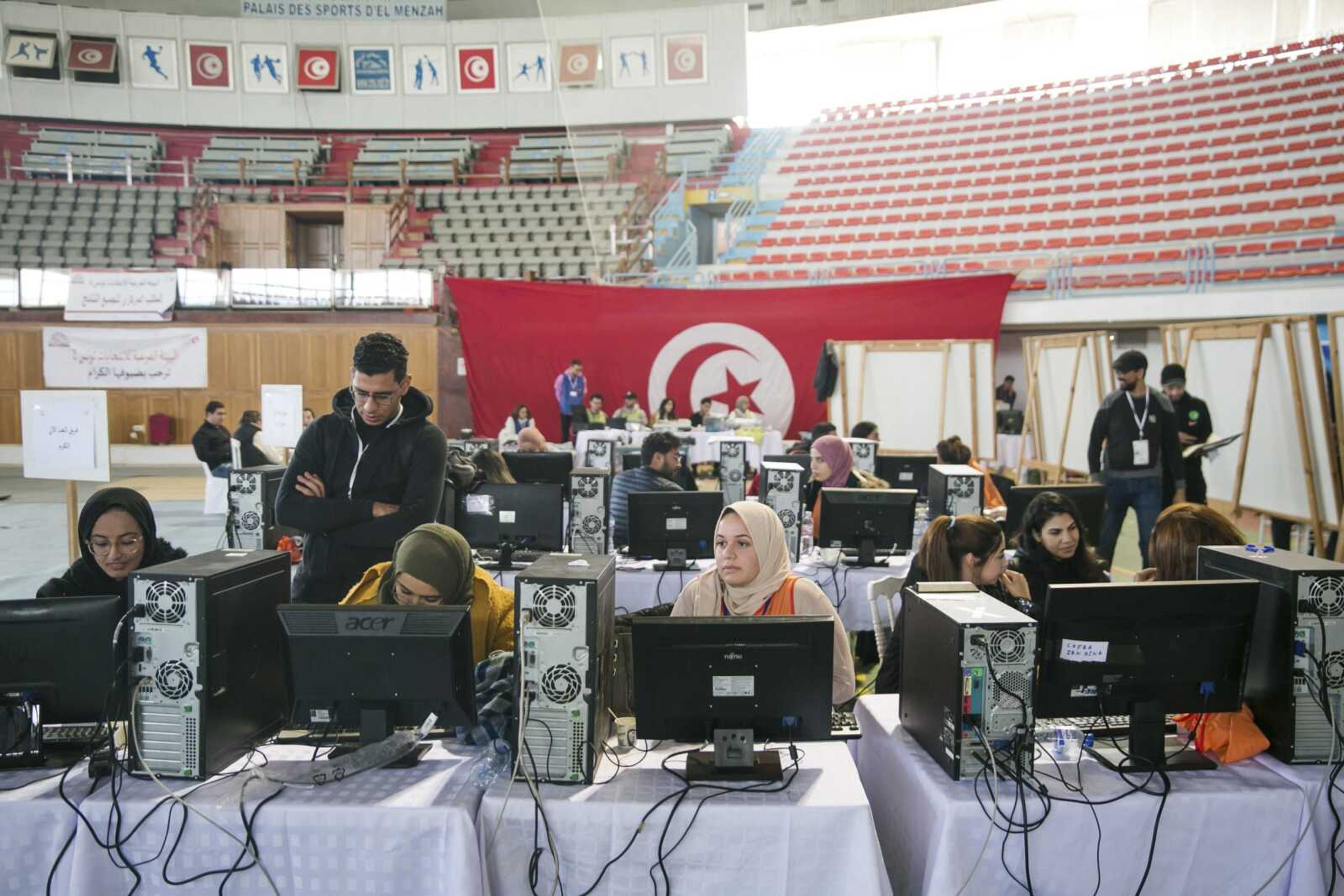Tunisian president urged to resign after election debacle
TUNIS, Tunisia -- Tunisian opposition figures called Sunday for the president's resignation after disastrous parliamentary elections in which less than 9% of voters cast ballots. The mass voter disavowal was a dramatic development for the country that was the birthplace of the Arab Spring uprisings against autocratic leaders a decade ago -- and the only one to emerge from that upheaval with a democratic political system...
TUNIS, Tunisia -- Tunisian opposition figures called Sunday for the president's resignation after disastrous parliamentary elections in which less than 9% of voters cast ballots.
The mass voter disavowal was a dramatic development for the country that was the birthplace of the Arab Spring uprisings against autocratic leaders a decade ago -- and the only one to emerge from that upheaval with a democratic political system.
The elections Saturday were meant to replace and reshape a legislature that President Kais Saied dissolved last year. It was one of several moves he has made to consolidate his power and tackle Tunisia's protracted economic and social crisis.
The election results are expected in the coming days.
Many opposition parties boycotted the vote, and many voters stayed away too.
According to provisional figures announced by the president of the electoral commission Farouk Bouaskar, around 800,000 voters took part in the elections out of approximately 9 million registered.
Opposition politician Ahmed Nejib Chebbi called the unprecedented low turnout "a real earthquake that will have serious consequences."
Chebbi heads the Salvation Front coalition formed by five opposition parties, including the Islamist movement Ennahdha, which held the largest number of lawmakers in the dissolved parliament. In a statement to reporters Sunday, he called on Saied to resign and called for the organization of an early presidential election supervised by an independent magistrate.
In the legislative, presidential and local elections that have taken place in Tunisia since 2011 after the revolution that brought down longtime leader Zine El Abidine Ben Ali, electoral officials say the average turnout rate was 40%. The lowest until Saturday was the 27% turnout in a referendum in July on Saied's new constitution.
"Thank you to the great people of Tunisia," opposition party Ennahdha posted in response on Facebook to the turnout results. "The people have boycotted."
The president of the opposition Free Destourian Party also called for Saied's resignation, as did the opposition Republican Party.
Bouaskar of the electoral commission had predicted a turnout of about 30%. He said participation was lower because parties could no longer use money to bribe voters according to new electoral rules.
There appeared to be multiple reasons for low turnout, including voters' disillusionment with the political class, their focus on financial worries, as well as opposition to Saied's political reforms. His critics said he designed the elections without involving political parties or civil society.
Connect with the Southeast Missourian Newsroom:
For corrections to this story or other insights for the editor, click here. To submit a letter to the editor, click here. To learn about the Southeast Missourian’s AI Policy, click here.









